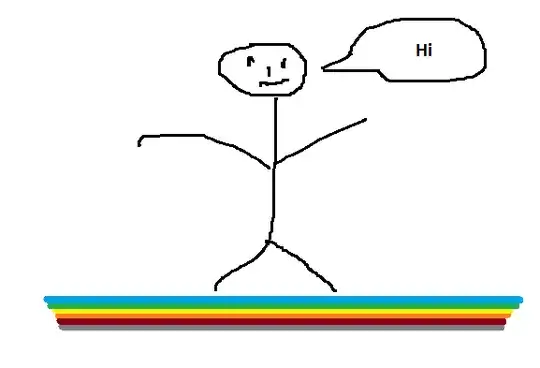You won't survive even if you managed to jump from a platform before hitting the ground.
The answers given by other users state that you need to apply a large force on the floor (or whatever) to save yourself. While it is certainly true that you need to apply a large force (impulse) to stop your motion, it will not save you.
Why is that you can't survive when you fall hit the ground at a high velocity?
The answer lies in the following equation:
$$impulse = \Delta p = Ft$$
To reduce your momentum to zero suddenly, you need a large impulse. The collision times are very small. This would mean a very large force would act on your body for a short interval of time. This would damage the body severely and hence you are likely to die.
Why does jumping off the floor (or a surface) just before falling does not save you?
To stop your motion by jumping off from the surface, you'll need to apply a large force. This large force is as lethal as hitting the ground. This will kill you.
Suppose you jumped off just before hitting the ground. The impulse you'll need to stop yourself is exactly equal to the impulse you would receive if you had hit the ground. Is that any better? Not at all. It does not help you in any way.
Suppose you jumped off the surface somewhere in mid-air. You'll first need an impulse to get yourself off the surface or slow yourself down. You can either take in a large impulse to slow you down too much (which could potentially be lethal) or a short impulse to slow you just a little bit. If you take high impulse but not lethal, that could reduce the net damage you would take when you hit the ground. If you don't slow down much, it serves no purpose. You continue to move at a high velocity and will eventually hit the ground at an even higher velocity.
At best, you can reduce the damage you take when you hit the ground.
Wait! There is a way out! (not sure if this case is allowed by the question as you don't jump)
Use rockets or jetpacks or a collection of platforms.

Shoot each platform downwards every 5 seconds to reduce your velocity. This probably does not count as jumping but this is a good method.
If you haven't realized, shooting platform is as good as using a jetpack. Jetpack spits out some exhaust gasses instead of shooting platforms.

